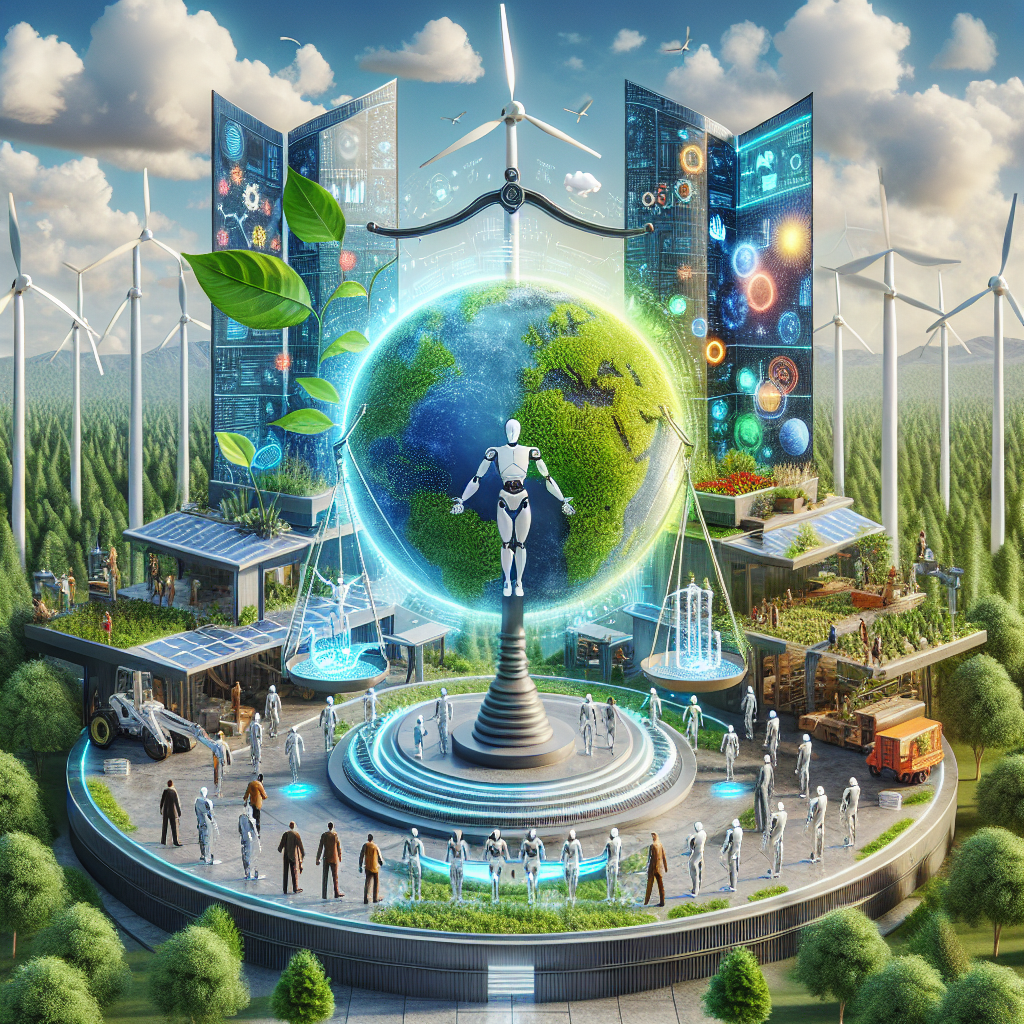
Future Trends in the Scientific Industry
The scientific industry is a rapidly evolving field that constantly adapts to new advancements and challenges. As we look towards the future, several key trends are expected to shape the industry in the coming years. In this article, we will analyze these trends and provide unique predictions and recommendations for professionals in the field.
1. Increased Focus on Sustainability
With growing concerns about climate change and environmental degradation, it is evident that the scientific industry will place a greater emphasis on sustainability in the future. Researchers and organizations will prioritize developing innovative solutions to mitigate the impact of human activities on the planet. This could involve finding alternative energy sources, implementing eco-friendly manufacturing processes, or promoting sustainable agricultural practices.
Prediction: We can expect to see an increase in interdisciplinary collaborations between scientists from various fields, such as biology, chemistry, and engineering, to address sustainability challenges. These collaborations will result in groundbreaking discoveries and scalable solutions that can be implemented globally.
Recommendation: Aspiring scientists should consider specializing in areas related to sustainability. Acquiring knowledge and skills in renewable energy, waste management, or environmental conservation will significantly enhance their career prospects in the coming years.
2. Advancements in Artificial Intelligence (AI)
The integration of artificial intelligence (AI) in scientific research has already shown promising results in various domains. In the future, AI is expected to play an even more significant role in accelerating scientific discovery and data analysis. Machine learning algorithms can process immense amounts of data, identify patterns, and make predictions, leading to more efficient and accurate scientific research.
Prediction: AI-powered tools and algorithms will become commonplace in scientific laboratories. Scientists will utilize these tools for tasks such as drug discovery, DNA sequencing, and climate modeling. The use of AI will revolutionize the scientific process, enabling researchers to explore complex problems and make breakthroughs at an unprecedented pace.
Recommendation: Scientists should familiarize themselves with AI technologies and data analysis techniques. Developing skills in programming and machine learning will be valuable assets for future research endeavors.
3. Ethical Considerations in Scientific Research
The scientific community is becoming increasingly aware of the ethical implications associated with certain research practices. As society becomes more conscious of privacy, data protection, and the potential misuse of scientific advancements, the industry will place a greater emphasis on ethical conduct and responsible innovation.
Prediction: Regulatory bodies and institutions will establish stricter guidelines and frameworks to ensure ethical practices in scientific research. Researchers will be required to undergo ethics training and adhere to protocols that prioritize transparency, informed consent, and data security.
Recommendation: Scientists should stay informed about emerging ethical considerations in their respective fields. Integrating ethical practices into research methodologies will foster trust with the public and enhance the credibility of scientific findings.
Science Events to Watch for in 2024
In addition to the future trends discussed above, it is important to highlight key science events to watch for in the upcoming year. These events serve as platforms for networking, knowledge-sharing, and showcasing groundbreaking research. Here are a few notable events in 2024:
- Conference on Sustainable Technologies (CoST): This conference brings together scientists, engineers, and policymakers to discuss innovative technologies and strategies for achieving sustainability goals. It will feature presentations on renewable energy, green infrastructure, and sustainable agriculture.
- International Summit on Artificial Intelligence (ISAI): ISAI is a global summit that convenes leading experts in AI research and applications. Participants will discuss the latest advancements, ethical considerations, and future implications of AI.
- Annual Meeting of the International Bioinformatics Society (IBS): The IBS meeting offers a platform for bioinformaticians and computational biologists to present their research on genomics, proteomics, and data analysis. It is an excellent opportunity to learn about cutting-edge computational techniques in life science research.
Attending these events will provide scientists with valuable insights, networking opportunities, and exposure to the latest trends in their respective fields.
Cats Play Fetch, But Only on Their Own Terms
The final point in the initial text captures a whimsical observation about cats. While not directly related to the scientific industry, it highlights the importance of embracing curiosity and recognizing the unexpected in scientific research.
In conclusion, future trends in the scientific industry point towards an increased focus on sustainability, advancements in AI, and ethical considerations in research. Professionals should seize opportunities to specialize in sustainability-related fields and acquire skills in AI and data analysis. Attending science events in 2024 will further enhance knowledge and foster networking opportunities. And let’s not forget, sometimes it’s the unexpected observations that lead to groundbreaking discoveries.
References:
- Nature article: “Tips from career experts on how to land a scientific position even in a struggling economy.” Published online: 19 December 2023. doi:10.1038/d41586-023-04150-8
